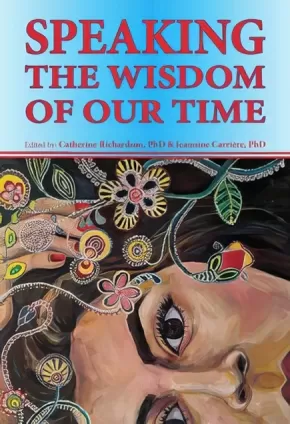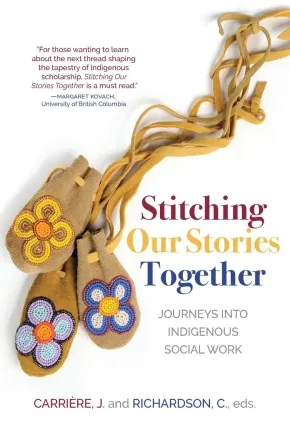Jeannine Carrière
Jeannine Carriere identifies as Red River Métis and has focused her academic scholarship on Indigenous child and family services. She was formerly a Professor at the School of Social Work at the University of Victoria.
Books (2)
Synopsis:
Within this volume Métis stories of strength, courage and resistance are shared. Each of the chapters describe a need to re-examine how social policy is formulated and have impacted our relatives and continue to impact our children. Today we are faced with particular challenges on the planet and in our communities. We have stretched Mother Earth to the limits of her capacity and she is fighting back. As someone said, ‘we need the Earth, but the Earth does not need us’. One of the invitations of this time is to reduce our footprint, our consumption and to restore balance and harmony between mankind and the environment.
Reviews
"This powerful collection revitalizes Métis teachings, history and perspectives and will inform social policy and public understandings of Métis identities, pedagogies, health, governance, and spirituality." - Sarah Wright Cardinal
"This book represents a remarkable collection of writing that reflects profound Métis knowledge and wisdom drawing on the insights of both historical and contemporary knowledge keepers. The result is a much needed and valuable resource to understanding Métis culture ranging from values to identity, land relationships, law and political acuity. It is an insightful and powerful tribute to Métis peoples and is certain to enhance your knowledge and understanding." - Gwendolyn Gosek
"This important book, with its exclusive focus on the work of women and two-spirit people, celebrates the unique wisdom and perspective of Métis scholars and communities. Its blend of personal narratives and culturally-connected research shows clearly why Métis voices must be amplified in academia and beyond." - Lindsay Morcom
Additional Information
168 pages | 6.00" x 9.00"
Synopsis:
A collection of graduate research by Indigenous social work scholars.
Stitching Our Stories Together showcases emerging scholars who, by centering their own nations, communities, and individual realities, demonstrate how Indigenous knowledges can challenge settler ideas and myths around pan-Indigeneity.
This collection is bookended with reflections from the scholars’ thesis supervisors, who describe their philosophy of mentoring and supporting students through an Indigenous lens, and how their pedagogies embrace the significance of relationality in Indigenous worldviews.
Stitching Our Stories Together points toward a future where Indigenous ways of knowing and being take their rightful place in spaces of higher learning and social work practice—a necessary intervention in a discipline that has historically been complicit in colonialist harm.
Reviews
“For those wanting to learn about the next thread shaping the tapestry of Indigenous scholarship, Stitching Our Stories Together is a must read.” —Margaret Kovach, University of British Columbia
“These teachings of Indigenous ways of knowing and being, written by Indigenous graduate students who share their ideas, stories, and life experiences, open the door for new ways of doing within academia, within social work practice, and within broader society.” —Dr. Sheri M. McConnell, Memorial University
“The profound and transformative impact of Indigenous senior scholars uplifting Indigenous graduate students pursuing thesis research is truly remarkable...The intergenerational exchange of knowledge and support creates a powerful legacy, ensuring that the voices and perspectives of Indigenous scholars continue to flourish and inspire future generations.” —Dr. Amanda LaVallee
Educator Information
Table of Contents
Acknowledgements xi
Introduction by Catherine Richardson and Jeannine Carrièrexiii
1. Supervision and Mentoring: Beyond the Destination 1
Jeannine Carrière and Catherine Richardson
PART ONE. EMBEDDING CHILD WELFARE RESEARCH INTO INDIGENOUS METHODOLOGIES
2. Researching Culturally Informed Approaches: Supporting Indigenous Youth Aging Out of Ministry Care 25
Robert Mahikwa
3. A Métis Grandmother’s Knowledge: Stories of Grandmother Teachings and Métis Child Welfare in British Columbia 45
Shelley Lafrance
4. An Inquiry Into the Stories of Indigenous Fathers and Their Paths Into Fatherhood: A Narrative Analysis Conducted With Kwakwaka’wakw Fathers 71
Tanille Johnston
PART TWO. ARTS-BASED KNOWLEDGES AND PRACTICES
5. centring stories by urban indigiqueers/trans/two-spirit people and indigenous women: on practices of decolonization, collective care, and self-care 91
mel lefebvre
6. Stitching Ourselves Back Together: Urban Indigenous Women’s Experience of Reconnecting with Identity through Beadwork 123
Shawna Bowler
7. Reconstituting Indigenous Identities through Portraiture and Storytelling: Reclaiming Representation for Indigenous Women and Two-Spirit People 145
Juliet Mackie
PART THREE. INDIGENOUS BODIES AND MEANING MAKING
8. Dancing My Way Home: Cultural Reclamation Through the Embodiment of the Michif Language 167
Victoria May
9. Researching Through miyo ohpikinâwasowin (Good Child-Rearing): A Framework for Knowledge Emergence and Transmission 203
Lindsay DuPré
10. Fat Bodies in Space: Explorations of an Alternate Narrative 219
N. Katie Webb
Conclusion by Jeannine Carrière and Catherine Richardson239
Epilogue 253
Contributors 257
Additional Information
336 pages | 6.00" x 9.00" | Paperback








